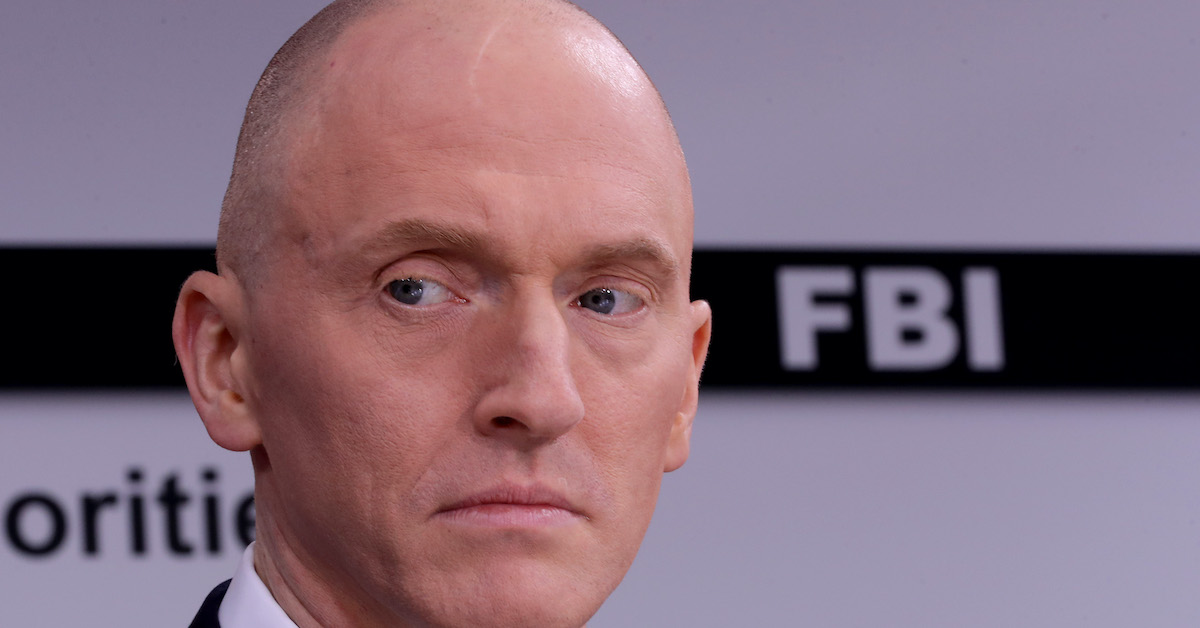
A federal court in Chicago dealt a blow to former Trump 2016 adviser Carter Page by throwing out a lawsuit filed against the Democratic National Committee (DNC) on on Monday.
U.S. District Court Judge Harry Leinenweber dismissed Page’s defamation, false light, tortious interference with prospective economic advantage, and conspiracy lawsuit against the DNC as well as high-profile Democratic Party powerbrokers/attorneys Marc Elias and Michael Sussman for lack of jurisdiction.
In the order, Leinenweber said the DNC and law firm of Perkins Coie simply did not have sufficient ties to the Northern District of Illinois in order for Page to maintain the civil lawsuit against them there. The Ronald Reagan-appointed judge also noted that the events alleged had no real legal connection to the region either.
“These allegations do not involve Illinois at all,” Leinenweber noted. “On its face, the Complaint fails to establish an Illinois connection.”
The judge rubbished the general logic and tenor of Page’s attempts at establishing jurisdiction over the defendants.
“Plaintiffs attempt to establish personal jurisdiction via seemingly intertwined agency and conspiracy theories of jurisdiction,” Leinenweber wrote. “Conspiracy theories of jurisdiction are not viable under Seventh Circuit and Illinois law.”
A decidedly procedural setback that doesn’t hinge much upon the merits, the ruling is still a significant victory for the DNC and elite law firm defendants who are now protected against Page’s requests for discovery in the matter and who may be teed up for recouping attorneys’ fees against the former Trump campaign foreign policy adviser.
The basis of Page’s latest failed lawsuit is the still-controversial dossier compiled by Christopher Steele–an opposition research project started at the behest of President Donald Trump’s GOP opponents during the 2016 primary before being handed off to the Hillary Clinton presidential campaign–care of the DNC.
That dossier, almost entirely discredited, alleged that Page and other members of Trump’s 2016 campaign actively conspired with members of Russian intelligence agencies in order to assist the Republican nominee’s electoral fortunes. Former special counsel Robert Mueller’s long-and-winding investigation failed to support the widely-believed conspiracy theory promoted by many of Trump’s critics in the Democratic Party and media.
The judge’s order takes stock of the relevant facts:
According to the Complaint, the DNC and its attorneys, Perkins Coie, retained Fusion GPS, a commercial research and strategic intelligence firm based in Washington D.C., and Christopher Steele, a private investigator, to dig up dirt on then presidential candidate Donald Trump. In return for substantial financial payments, the Defendants received the notorious Steele Dossier, which Plaintiffs allege Defendants subsequently distributed for publication. This Dossier stated that Page traveled to Russia and met with two of Vladimir Putin’s close allies to discuss lifting United States sanctions imposed on Russia by the Obama administration. The Complaint alleges this was false and caused Plaintiffs emotional and financial damages.
According to Page, all the plaintiffs should be on the Chicago court’s jurisdictional hook due to: (1) past work the firm has done for Barack Obama; along with (2) a letter sent by the firm’s Chicago-based general counsel to Fusion GPS’s general counsel about “unique specifics of Perkins Coie’s relationship with Fusion GPS, the DNC, and the Clinton campaign” which would have necessitated the Chicago-based counsel’s interaction with the DNC; and (3) the fact that the DNC employed Perkins Coie to fund Fusion GPS.
Judge Leinenweber said those facts were not enough:
The Court struggles to see how Plaintiffs’ Complaint establishes any relevant connection to Illinois. The only potentially helpful claim—that Defendants “orchestrated” their relationship with Fusion GPS through Perkins Coie’s Chicago office—is baseless conjecture. Even if assumed true, this patchwork of unrelated Illinois connections does not establish specific personal jurisdiction over any Defendant in this case. Frankly, the Court is confused as to how Plaintiffs think it does, especially when many of the allegations wholly relate to non-party Illinois connections.
“These efforts to blow smoke cannot obscure the obvious,” the court added. “Plaintiffs’ claims consist entirely of out-of-state activity by out-of-state actors.”
Read the full order below:
Page v. DNC Dismissal by Law&Crime on Scribd
[image via Chip Somodevilla/Getty Images]